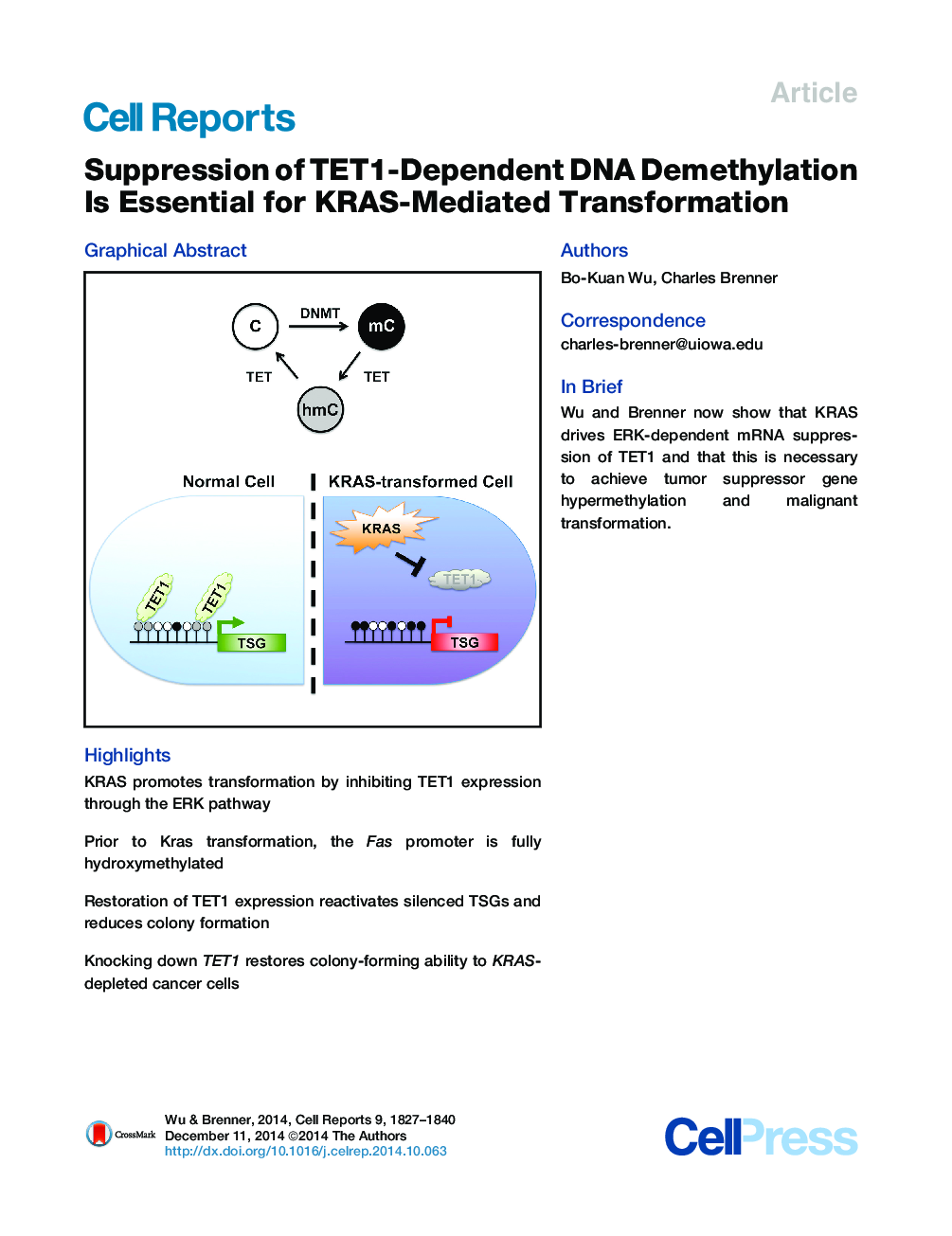| کد مقاله | کد نشریه | سال انتشار | مقاله انگلیسی | نسخه تمام متن |
|---|---|---|---|---|
| 2042151 | 1073187 | 2014 | 14 صفحه PDF | دانلود رایگان |

• KRAS promotes transformation by inhibiting TET1 expression through the ERK pathway
• Prior to Kras transformation, the Fas promoter is fully hydroxymethylated
• Restoration of TET1 expression reactivates silenced TSGs and reduces colony formation
• Knocking down TET1 restores colony-forming ability to KRAS-depleted cancer cells
SummaryHypermethylation-mediated tumor suppressor gene (TSG) silencing is a central epigenetic alteration in RAS-dependent tumorigenesis. Ten-eleven translocation (TET) enzymes can depress DNA methylation by hydroxylation of 5-methylcytosine (5mC) bases to 5-hydroxymethylcytosine (5hmC). Here, we report that suppression of TET1 is required for KRAS-induced DNA hypermethylation and cellular transformation. In distinct nonmalignant cell lines, oncogenic KRAS promotes transformation by inhibiting TET1 expression via the ERK-signaling pathway. This reduces chromatin occupancy of TET1 at TSG promoters, lowers levels of 5hmC, and increases levels of 5mC and 5mC-dependent transcriptional silencing. Restoration of TET1 expression by ERK pathway inhibition or ectopic TET1 reintroduction in KRAS-transformed cells reactivates TSGs and inhibits colony formation. KRAS knockdown increases TET1 expression and diminishes colony-forming ability, whereas KRAS/TET1 double knockdown bypasses the KRAS dependence of KRAS-addicted cancer cells. Thus, suppression of TET1-dependent DNA demethylation is critical for KRAS-mediated transformation.
Graphical AbstractFigure optionsDownload as PowerPoint slide
Journal: - Volume 9, Issue 5, 11 December 2014, Pages 1827–1840